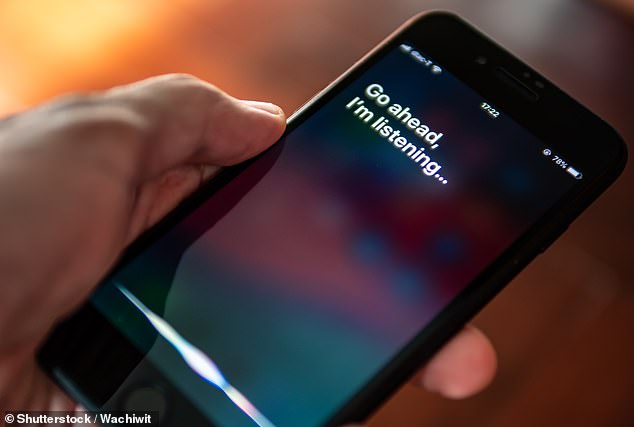Anyone who owned an Apple device over the last decade may be able to claim part of a $95 million class action lawsuit against the tech giant.
According to the lawsuit, iPhones, iPads, Apple Watches, and MacBooks dating back to 2014 may have secretly recorded their users’ private conversations after the devices unintentionally activated Apple’s voice assistant Siri.
A notice about the case, Lopez v. Apple, has advised anyone who believes Siri spied on their confidential or private calls between September 17, 2014 and December 31, 2024 to submit a claim for damages.
Apple’s iMacs, Apple TV streaming boxes, HomePod speakers, and iPod Touches are also included in the lawsuit.
Although Apple has denied that their devices spied on users, the $3 trillion company reached a settlement in the case, agreeing to give users up to $20 per Siri device in their claim.
However, that amount could end up being less depending on the number of people making claims against Apple.
Each customer can also only claim up to five Apple devices, meaning that the most a person can recover from the alleged spying case is $100.
Apple users have until July 2, 2025 to enter their claim in the settlement, which can be done by on the Lopez Voice Assistant Settlement website.

Apple users alleged that their device which use the Siri voice assistant secretly recorded private conversations and Apple used the information to send them targeted ads
Some Apple customers may have received an email or letter in the mail that provided them with a claim identification code and confirmation code that allowed them to enter the settlement right away.
However, you don’t need to have received a notice to make a claim. For those filing on the settlement website, you’ll have to swear under oath that you experienced an unauthorized activation of your Siri voice assistant while having a private conversation.
If Apple users are not sure if that actually happened, they can find out if they’re eligible for the settlement by speaking with the lawsuit’s administrators on their website or over the phone.
The lawsuit was filed in federal court in 2021 after some Apple users claimed that recordings of their private conversations were obtained by Apple and shared with third parties after the Siri feature on their devices was unknowingly turned on.
Plaintiffs in the lawsuit, including lead plaintiff Fumiko Lopez, alleged that they received targeted ads based on the topics discussed in their private conversations near Siri-enabled devices.
Two plaintiffs claimed they saw ads for Air Jordan sneakers and Olive Garden after discussing those brands aloud. Another person received an ad for a medical treatment after talking about the procedure privately with their doctor.
Moreover, an Apple whistleblower came forward in 2019, revealing to The Guardian how Apple third-party contractors listened to recordings to assess Siri’s accuracy.
The whistleblower revealed that contractors regularly heard private recordings, including medical discussions, criminal activities, and intimate moments, captured due to accidental activations of the Siri voice assistant.

Any Apple device with Siri dating back to 2014 may have unknowingly recorded a conversation that was later studied and reviewed by Apple third-party contractors with consent
After the bombshell report, Apple issued a statement defending their practice of reviewing audio samples taken using Siri.
They added that only an extremely small number of Siri recordings were studied and the recordings were anonymized, not linked to Apple IDs, and that contractors were bound by strict confidentiality agreements.
‘Our process involved reviewing a small sample of audio from Siri requests — less than 0.2 percent — and their computer-generated transcripts, to measure how well Siri was responding and to improve its reliability,’ Apple stated in 2019.
Despite their defense of the tactics, Apple would suspend the program just days after the whistleblower report.
For those who decide to join the settlement, there is a catch to taking the small payout from Apple.
‘Unless you exclude yourself with an opt-out request, you cannot sue, continue to sue, or be part of any other lawsuit against Apple arising out of or related to the claims in this case,’ the settlement website explained.
A final settlement hearing is scheduled for August 1, which will decide whether to approve the agreement between Apple and its customers.
The time it takes for those payments to reach Apple users will depend on whether anyone files an appeal to the settlement decision.
If there are no appeals to the $95 million deal, the checks are excepted to start rolling out shortly after the court closes the case this summer.
This article was originally published by a www.dailymail.co.uk . Read the Original article here. .

